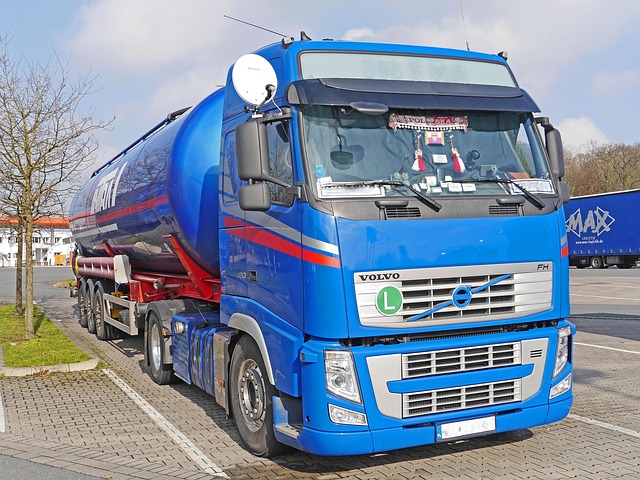Truck drivers appealing decisions must understand regulations, gather detailed evidence like records, photographs and expert statements, know federal guidelines like FMCSA rules, act promptly, build strong cases with clear, supported arguments, and demonstrate compliance to increase appeal success rates.
“Unraveling the complex world of truck appeals, this comprehensive guide offers a roadmap for drivers and carriers navigating dispute resolution. From understanding foundational concepts like the appeal process basics to mastering evidence collection and legal protocols specific to truck disputes, you’ll gain invaluable insights. Learn from common mistakes, discover winning strategies, and equip yourself with knowledge to confidently advocate for your rights in the face of challenges. Optimized for clarity and SEO, explore these essential topics: truck appeals, documentation, legalities, and success tactics.”
- Understanding the Basics of Truck Appeal Process
- Documenting and Gathering Evidence for Appeals
- Navigating Legal Protocols in Truck Disputes
- Common Mistakes to Avoid During the Appeal
- Successful Strategies for Winning Truck Appeals
Understanding the Basics of Truck Appeal Process

Understanding the appeal process is crucial for truck drivers who want to challenge decisions made against them. This process allows drivers to present their case and provide evidence to overturn penalties or fines issued by transportation authorities. The basics involve filing an appeal within a specified timeframe, often accompanied by detailed documentation detailing the reasons for disagreement.
Drivers must familiarize themselves with relevant regulations and guidelines specific to their trucking operations. This includes understanding the grounds for appeal, such as alleged violations not committed, incorrect interpretation of rules, or extenuating circumstances. A well-prepared appeal can significantly improve the chances of a favorable outcome, ensuring fairness in the face of potential penalties that could impact a trucker’s livelihood.
Documenting and Gathering Evidence for Appeals

When initiating an appeal, especially in cases involving large vehicles like trucks, meticulous documentation and evidence gathering are paramount. This process requires a systematic approach to ensure all relevant information is captured accurately. Compiling a comprehensive record of the initial decision, along with any supporting documents, forms a solid foundation for the appeal.
Effective strategies include collecting photographs of the incident scene, maintenance records of the trucks involved, and statements from witnesses or individuals with expertise in the matter. These materials can significantly strengthen an appeal by providing tangible evidence that contradicts the original ruling. A thorough review of all available data will aid in crafting a compelling argument for a favorable outcome.
Navigating Legal Protocols in Truck Disputes

Navigating legal protocols in truck disputes can be a complex and intricate process, especially given the unique regulations and standards governing the transportation industry. When a truck is involved in an accident or a dispute arises over cargo, understanding the proper procedures becomes paramount for all parties involved. These protocols ensure fairness, safety, and compliance with laws designed to protect both drivers and shippers.
In such scenarios, drivers and companies must familiarize themselves with federal regulations like those set by the Federal Motor Carrier Safety Administration (FMCSA). These guidelines cover everything from hours-of-service restrictions to vehicle maintenance standards. Understanding these protocols is crucial for building a solid case during an appeal process, where evidence and adherence to regulations play a significant role in determining the outcome.
Common Mistakes to Avoid During the Appeal

During an appeal process for truck-related cases, it’s crucial to steer clear of several common pitfalls that can weaken your argument. One significant mistake is failing to adhere to strict deadlines; appeals are time-sensitive, and any delay can result in dismissal. Always ensure you understand the filing periods and act promptly.
Another blunder is lacking a comprehensive understanding of the legal framework. Thoroughly research and grasp the applicable laws and regulations related to trucks to present a well-informed appeal. Avoid vague or incomplete arguments; clearly articulate your reasons for disagreement with the initial decision, providing specific examples and relevant evidence to support your case.
Successful Strategies for Winning Truck Appeals

When it comes to winning truck appeals, a strategic approach is key. One effective strategy involves thoroughly reviewing the original decision and identifying any errors or omissions. By pinpointing these issues, appellants can build a strong case, addressing each point with compelling evidence and legal arguments. For instance, providing detailed records of maintenance and inspection, along with expert testimony, can challenge mechanical failure determinations.
Another successful tactic is to demonstrate compliance with regulations. Trucks and their operations must adhere to strict guidelines, so presenting up-to-date certifications and logs shows due diligence. Additionally, appealing agencies often consider public safety records. Demonstrating a clean safety history and adhering to best practices during appeals can significantly strengthen your case.
The truck appeal process is a vital avenue for resolving disputes and securing justice for those involved in trucking industries. By understanding the basics, documenting evidence thoroughly, adhering to legal protocols, and avoiding common mistakes, individuals can significantly enhance their chances of success. Implementing effective strategies, such as presenting compelling arguments and leveraging solid evidence, can lead to favorable outcomes. Remember, knowledge is power when navigating complex appeals, ensuring the best possible resolution for all parties in the trucking sector.
